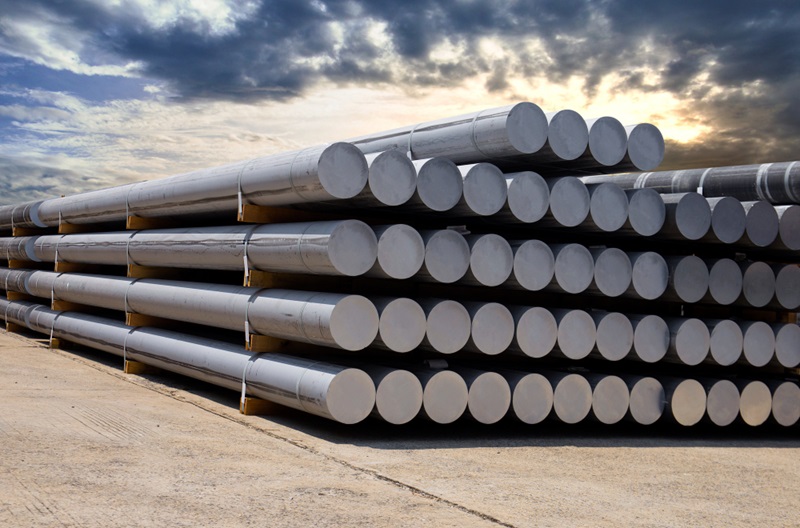
In the construction industry, materials play a pivotal role in determining the success and durability of a project. Among the myriad choices, steel stands out as a robust and versatile material, with steel pipe piles and steel sheet piles being two prominent forms. Keep reading to know the nuanced differences between these steel products, focusing on shape, manufacturing processes, application, installation methods, load-bearing capabilities, and durability. This piece offers valuable insights into selecting the appropriate material from pipe pile suppliers for your next big project.
1. Exploring Geometric Elegance
The shape is the most apparent difference between steel pipe piles and steel sheet piles. Steel pipe piles, as supplied by pipe pile suppliers, are cylindrical, offering a solid, round cross-section. This shape is instrumental in providing equal strength in all directions, making them ideal for bearing loads uniformly. On the other hand, steel sheet piles have a Z or U shape, which is essential in providing lateral stability and is excellent for retaining walls and similar structures.
2. Crafting Steel with Precision
When it comes to the manufacturing process, both types have distinct methods. Pipe pile suppliers often emphasize the seamless construction of steel pipe piles. They are typically made through welding or driving, ensuring high strength and integrity. In contrast, steel sheet piles are usually manufactured through cold rolling or hot rolling processes, giving them the unique shapes and properties necessary for their specific applications.
3. Tailored Applications for Excellence
Application-wise, the two types of steel piles serve different purposes.
Pipe pile suppliers predominantly use steel pipe piles in deep foundations to support large structures such as buildings, bridges, and piers. Their ability to withstand high pressure and force makes them a preferred choice in such scenarios. Conversely, steel sheet piles are excellent for creating retaining walls, cofferdams, or temporary structures, where lateral earth support is crucial.
4. Innovative Installation Techniques
The installation method of these piles also varies significantly. Steel pipe piles require specific techniques like driving, jetting, or drilling, as advised by pipe pile suppliers. This installation ensures deep penetration and a firm grip on the soil. Steel sheet piles, with their interlocking edges, are driven into the ground using vibratory hammers, making them quicker to install in certain conditions.
5. Uncovering Strength Under Pressure
Regarding load-bearing capacity, steel pipe piles generally have a higher capacity due to their circular cross-section, which distributes the load evenly. That makes them popular among pipe pile suppliers for projects requiring robust support. Steel sheet piles, while not as strong in bearing vertical loads, excel in withstanding lateral earth pressures, making them ideal for earth retention and excavation projects.
6. Assessing Durability Over Time
Durability is a crucial factor in construction materials. Steel pipe piles are known for their longevity and resistance to environmental factors, a quality that pipe pile suppliers often highlight. They are less prone to corrosion and can withstand harsh conditions. Steel sheet piles are also durable, especially when treated or coated, but may require more maintenance in corrosive environments.
Enhance Your Construction Project with International Pipe’s Expertise
Are you ready to take your construction projects to the next level? International Pipe, your trusted pipe pile supplier, is here to provide you with top-quality steel pipe piles and sheet piles that can withstand the test of time.
Our extensive experience and commitment to excellence ensure you get the best value for your investment. Whether you need steel pipe piles for deep foundations or steel sheet piles for retaining walls, we have you covered. Contact us to discuss your project needs and experience the difference in quality and service.
